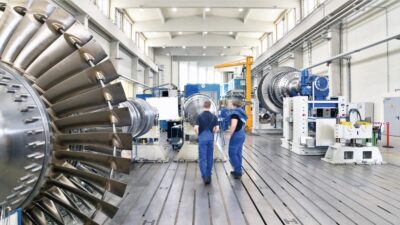
Two out of three SMEs want to revise their global market presence In two-thirds of German mechanical engineering companies, restructuring their international business is one of their major concerns. The reason: new challenges have to be faced in the race to develop the rising economies of Asia and Latin America as sales markets. The task is to manage the change from the “extended workbench” to a sophisticated consumer market. The interaction between management in Germany and regional management in the target countries is a particular cause of problems in the positioning as global players. This has been shown in market observations by Staufen AG business consultancy and the Technical University Darmstadt.
“We observe major planning deficits in the international orientation of German SMEs,” comments Wilhelm Goschy, Board Member of Staufen AG. “Anyone not adopting a proactive forward-looking strategy for the fast-growing domestic markets of China or Brazil runs the risk of getting bogged by the myriad of small-scale tasks. The management is well advised to exercise great diligence in the development of a forward plan as guidance for the company’s strategy for the next ten years. This “front-loading” approach requires, for example, the deliberate deployment of the best brains to the target countries rather than negligent reliance on improvised solutions.” “Small and medium-sized German mechanical engineering companies still have a lot of potential in designing processes in international alliances,” explains Professor Eberhard Abele of the TU Darmstadt Institute for Production Management (PTW). “Decisions about working structures at the sites in the emerging markets automati-cally affect the role definition of the German central office; for that reason, coordination with business transacted abroad is a requirement.” Using product development as an example: Primary plants in Germany traditionally ensure the competitive advantage of products “Made in Germany”. At the same time, development in the target countries with emerging markets becomes ever more important and needs to be managed by those with knowledge of the local market. For example, it is possible to develop basic product versions in Asia specifically for the local market which may differ from the company’s international product line, for a better response to demand in terms of price and specifications. Conversely, the option remains of retaining part of series production in Germany despite current cost advantages. Differences in labour cost, for example, can be compensated with consistent lean automation. The BestPractice Day in Darmstadt on 4 and 5 June 2013 will be a platform for leading experts in lean management to present the current state of research and to enter into a dialogue regarding its practical implications. For more information about the event, please visit: http://www.best-practice-day.com
